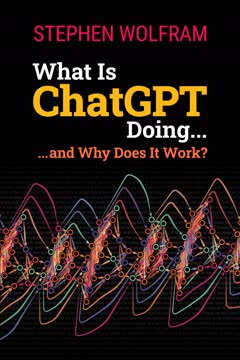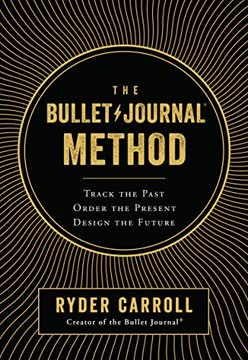Key Takeaways
1. Reading is comprehension, not just word recognition
You haven't read anything until you've comprehended it.
Reading is understanding. The act of reading goes beyond merely recognizing words on a page. It involves grasping the meaning behind those words and integrating that information into your existing knowledge. Comprehension is the ultimate goal of reading, not just the ability to pronounce or identify words.
Comprehension precedes speed. Many speed reading techniques focus on increasing the rate at which eyes move across text, but this approach puts the cart before the horse. True reading speed improvements come from enhancing comprehension first. When you understand more quickly, your reading naturally becomes faster.
Measure information, not words. Instead of focusing on words per minute (WPM), consider information per minute (IPM) as a more meaningful metric. This shift in perspective emphasizes the importance of extracting and processing information rather than simply moving your eyes quickly across text.
2. Visualize and conceptualize to engage the right brain
Visualizing is just thinking about it with your right brain, the parallel-processing hemisphere that has its own very effective way of rapidly understanding large amounts of information.
Tap into right-brain power. The right hemisphere of the brain excels at processing visual information and grasping big-picture concepts. By actively visualizing and conceptualizing what you read, you engage this powerful part of your mind, leading to faster and more effective comprehension.
Create mental images. As you read, try to form mental pictures of the concepts being described. This doesn't mean creating detailed, perfect images for every word, but rather quick flashes or impressions of the ideas. For abstract concepts, think about what they mean to you or use metaphorical imagery.
Conceptualize abstract ideas. Not everything can be visualized concretely. For abstract concepts, focus on understanding the essence of the idea and its relationships to other concepts. This process of conceptualization helps you grasp and retain information more effectively than simply memorizing words.
3. Read in meaningful phrases, not individual words
Reading with the right brain is almost like learning to write with your other hand.
Chunk information. Instead of reading word by word, train yourself to take in groups of words that form complete ideas or "thought units." This approach allows you to process information more efficiently and understand the relationships between ideas more quickly.
Identify meaningful phrases. Look for groups of words that convey a single concept or idea. These might be short phrases like "the big dog" or longer ones like "in the midst of the great Kansas prairies." By focusing on these units of meaning, you can grasp ideas more quickly and naturally.
Practice with formatted text. The book provides exercises with alternating black and gray text to help identify meaningful phrases. This visual aid can help train your brain to recognize and process larger chunks of information at once, eventually leading to faster and more effective reading.
4. Pushing speed hinders comprehension; focus on understanding
Pushing your speed beyond your comprehension leads to nothing more than exhaustion and frustration.
Comprehension first, speed second. Many speed reading techniques advocate for pushing reading speed and expecting comprehension to catch up. This approach is fundamentally flawed. Instead, focus on understanding the material, and increased speed will naturally follow as your comprehension improves.
Avoid mechanical speed increases. Using techniques like metronomes or forced eye movements to increase reading speed often results in poor comprehension and retention. These methods may appear to increase words per minute, but they don't improve actual information processing.
Let speed come naturally. As you improve your ability to comprehend and conceptualize information quickly, your reading speed will increase organically. This natural speed increase is sustainable and doesn't sacrifice understanding for the sake of appearing to read faster.
5. Flexibility in reading speed is key to effective comprehension
Reading is like slot car racing. Speeding along through simple and familiar reading material is like racing down a straightaway. But coming into more difficult material or complex writing style means you've got to slow down, otherwise you'll find you are reading along, when all of a sudden nothing more is entering your mind.
Adapt to content difficulty. Your reading speed should naturally vary based on the complexity of the material and your familiarity with the subject. Just as a car slows down for curves and speeds up on straightaways, your reading pace should adjust to the content.
Start slow, build context. When beginning a new text or chapter, start at a slower pace to establish context and understanding. This initial investment in comprehension will allow you to read faster as you progress and become more familiar with the material.
Be aware of speed variations. Recognize that your reading speed will naturally fluctuate based on factors like:
- Complexity of the material
- Your prior knowledge of the subject
- Writing style and sentence structure
- New or unfamiliar vocabulary
- Your current mental state and focus
6. Relaxation and proper mindset enhance reading performance
Relaxation clears your working memory, erasing that mental white board.
Prepare your mind. Before beginning to read, take a moment to relax and clear your mind. This mental preparation helps create a receptive state for new information and improves your ability to focus and comprehend.
Set clear goals. Understand why you're reading a particular text and what you hope to gain from it. Having a clear purpose helps maintain focus and motivation throughout the reading process.
Stay patient and positive. Improving reading skills takes time and practice. Maintain a patient and positive attitude, recognizing that progress may be gradual but consistent effort will lead to significant improvements over time.
7. Practice conceptual reading to develop lasting skills
Learn to swim, and then swim.
Consistent practice is key. Like any skill, improving your reading ability requires regular practice. Set aside time each day to practice conceptual reading techniques, gradually increasing the complexity of the material as your skills improve.
Focus on technique over speed. During practice sessions, concentrate on applying the techniques of visualization, conceptualization, and phrase-reading rather than trying to increase your speed. Proper technique will naturally lead to increased speed over time.
Use diverse reading materials. Practice with a variety of texts, including fiction and non-fiction, to develop versatility in your reading skills. This diversity will help you adapt to different writing styles and subject matters more effectively.
8. Debunking speed reading myths and unrealistic claims
The truth may be a disappointment to some, but in the end, reality is always easier to handle than delusion.
Be skeptical of extraordinary claims. Many speed reading programs make unrealistic promises about reading speeds of thousands of words per minute with perfect comprehension. These claims are not supported by scientific evidence and set unrealistic expectations.
Understand human limitations. The human brain has physical limits on information processing speed. While reading skills can be significantly improved, claims of superhuman reading speeds are generally unfounded.
Focus on achievable goals. Instead of aiming for unrealistic reading speeds, focus on meaningful improvements in both speed and comprehension. Doubling your reading speed while maintaining or improving comprehension is a significant and achievable goal for many readers.
9. Consistent practice and patience are essential for improvement
All practice is good and never a waste of time. The only wasted time is the time wasted before deciding to start improving your reading.
Commit to regular practice. Set aside time each day to work on your reading skills. Consistency is more important than duration; even short daily practice sessions can lead to significant improvements over time.
Be patient with progress. Improvement in reading skills is often gradual. Don't become discouraged if you don't see immediate results. Trust in the process and continue applying the techniques consistently.
Track your progress. Keep a record of your reading speeds and comprehension levels to monitor your improvement over time. This can help maintain motivation and identify areas that may need additional focus.
Last updated:
FAQ
1. What is "Speed Reading with the Right Brain" by David Butler about?
- Conceptual Reading Focus: The book introduces a unique approach to speed reading that emphasizes reading for ideas and concepts rather than just words or sounds.
- Right Brain Engagement: It teaches readers how to use the right hemisphere of the brain—responsible for visualization and big-picture thinking—to improve reading speed and comprehension.
- Practical Exercises: The book provides specially formatted practice exercises using classic literature, designed to help readers develop the habit of reading in meaningful phrases.
- Debunking Myths: Butler critiques traditional speed reading methods and myths, offering a science-based, practical alternative focused on comprehension first.
2. Why should I read "Speed Reading with the Right Brain" by David Butler?
- Comprehension Before Speed: The book argues that true reading improvement comes from better comprehension, not just faster eye movement, making it valuable for anyone frustrated with traditional speed reading techniques.
- Applicable to All Readers: Whether you’re a student, professional, or lifelong learner, the method can help you read more efficiently and retain more information.
- Addresses Common Frustrations: Butler shares his personal struggles with slow reading and poor retention, making the book relatable and offering hope for real improvement.
- Practical, Not Gimmicky: Unlike many speed reading books, this one avoids hype and focuses on actionable, research-backed strategies.
3. What are the key takeaways from "Speed Reading with the Right Brain"?
- Reading Is Comprehension: Real reading is about understanding ideas, not just recognizing words or sounds.
- Phrase-Based Reading: Learning to read in meaningful phrases or "idea clumps" allows for faster and deeper comprehension.
- Visualization Is Essential: Actively visualizing or conceptualizing what you read engages the right brain and leads to better retention and understanding.
- Practice with Purpose: Deliberate, focused practice using the book’s exercises is necessary to develop these new reading habits.
4. How does David Butler’s right-brain speed reading method differ from traditional speed reading techniques?
- Comprehension First, Not Speed: Traditional methods often push for faster eye movement and less vocalization, sometimes at the expense of understanding; Butler’s method prioritizes comprehension.
- Focus on Ideas, Not Words: Instead of reading word-by-word or using arbitrary eye-span techniques, Butler teaches readers to seek out and process whole ideas or phrases.
- Visualization Over Eye Exercises: The method relies on visualizing and conceptualizing information, rather than mechanical tricks like finger pacing or eye movement drills.
- Skeptical of Gimmicks: Butler debunks common speed reading myths, such as finger-waving patterns and the idea that you can simply "push" your speed to improve.
5. What is the role of the right brain in speed reading, according to "Speed Reading with the Right Brain"?
- Parallel Processing Power: The right hemisphere processes information in patterns and images, allowing for simultaneous understanding of larger chunks of information.
- Visualization and Conceptualization: The right brain excels at visualizing scenes and grasping abstract concepts, which is key to Butler’s method.
- Big-Picture Thinking: Engaging the right brain helps readers see the overall meaning and connections in the text, rather than getting bogged down in individual words.
- Complementary to Left Brain: While the left brain decodes words, the right brain synthesizes them into meaningful ideas, making reading more efficient and enjoyable.
6. How do the practice exercises in "Speed Reading with the Right Brain" work?
- Phrase Highlighting: Exercises use alternating black and gray text to visually separate meaningful phrases, making it easier to focus on ideas rather than individual words.
- Classic Literature Samples: Each exercise features the first 1,000 words of a classic novel, providing engaging and varied material for practice.
- Gradual Progression: Exercises start with shorter phrases and gradually increase in length and complexity, helping readers build their skills step by step.
- Transition to Normal Text: The final portions of each exercise remove the highlighting, encouraging readers to apply the skill to regular, unformatted text.
7. What are the main concepts of "conceptualizing" and "visualizing" in Butler’s method?
- Conceptualizing Defined: This means forming a mental model or idea of what a phrase means, combining all its attributes, not just picturing it literally.
- Visualizing in Practice: Readers are encouraged to create quick mental images or abstract representations of ideas as they read, even for non-visual or abstract concepts.
- Beyond Pictures: Visualization can be metaphorical or purely conceptual—it's about "seeing" the meaning, not just creating a mental picture.
- Key to Comprehension: These processes engage the right brain and are central to achieving faster, more meaningful reading.
8. How does "Speed Reading with the Right Brain" address common reading habits like subvocalization and regression?
- Symptoms, Not Causes: Butler explains that subvocalization (saying words in your head) and regression (rereading) are symptoms of poor comprehension, not bad habits to be suppressed directly.
- Replace, Don’t Suppress: The method focuses on replacing these habits by engaging the right brain through visualization and conceptualization, making subvocalization unnecessary.
- Comprehension Reduces Regression: When you understand ideas as you read, the urge to go back and reread diminishes naturally.
- Focus on Meaning: By concentrating on ideas, readers naturally move away from word-by-word reading and its associated habits.
9. What does "Speed Reading with the Right Brain" say about the limits and myths of speed reading?
- Debunks Extreme Claims: Butler challenges the idea that most people can read thousands of words per minute with full comprehension, citing research and real-world statistics.
- Comprehension Sets the Limit: The true upper limit for most readers is around 400–600 words per minute, with comprehension as the bottleneck.
- Critiques Gimmicks: Myths like finger-waving, eye exercises, and "PhotoReading" are addressed and dismissed as ineffective or unproven.
- Emphasizes Realistic Goals: The book encourages readers to focus on doubling or tripling their current speed through comprehension, rather than chasing unrealistic numbers.
10. How can readers apply Butler’s right-brain speed reading method to their everyday reading?
- Practice with Regular Text: After using the book’s exercises, readers are encouraged to scan for meaningful phrases and visualize ideas in all their reading material.
- Be Flexible: Adjust reading speed based on the difficulty and density of the material, always prioritizing comprehension.
- Set Small Goals: Use short reading sprints and regular breaks to build focus and stamina.
- Apply to All Genres: The method works for fiction, non-fiction, educational texts, and even comics, though the approach may vary slightly by type.
11. What are the best quotes from "Speed Reading with the Right Brain" and what do they mean?
- "Reading IS comprehension." – Emphasizes that reading without understanding is not truly reading; comprehension is the core of the process.
- "To read faster you must forget about how fast you are reading and put all your attention on what you are reading." – Reminds readers that speed is a byproduct of comprehension, not the goal.
- "Visualizing is not just one of the techniques—it is the key to engaging these other techniques while you are reading." – Highlights the central role of visualization in the method.
- "The purpose of reading is not to remember words, but to assimilate ideas." – Shifts the focus from memorization to meaningful learning and knowledge integration.
12. What resources and further support does "Speed Reading with the Right Brain" by David Butler offer?
- Free Online Course: The book provides access to a free online phrase-reading course at readspeeder.com, with structured lessons and instant feedback.
- Phrase-Reading Tool: Readers can use phrasereader.com to practice with any text, automatically formatted into meaningful phrases.
- Additional Books: Butler offers related books like "Easy Speed Reading" and "Speed Reading in 60 Seconds" for further practice.
- Direct Author Support: Readers are invited to contact the author with questions, and are encouraged to leave reviews and track their progress using downloadable forms.
Review Summary
Speed Reading with the Right Brain receives mostly positive reviews for its unique approach focusing on comprehension and visualization rather than just speed. Readers appreciate the practical exercises and classical text excerpts for practice. Many report improved reading speed and enjoyment. Some criticize the book's repetitiveness and length, feeling it could be more concise. The author's debunking of speed reading myths and emphasis on understanding over pure speed is well-received. Overall, reviewers find the technique helpful for improving both reading speed and comprehension.
Similar Books







Download PDF
Download EPUB
.epub digital book format is ideal for reading ebooks on phones, tablets, and e-readers.





